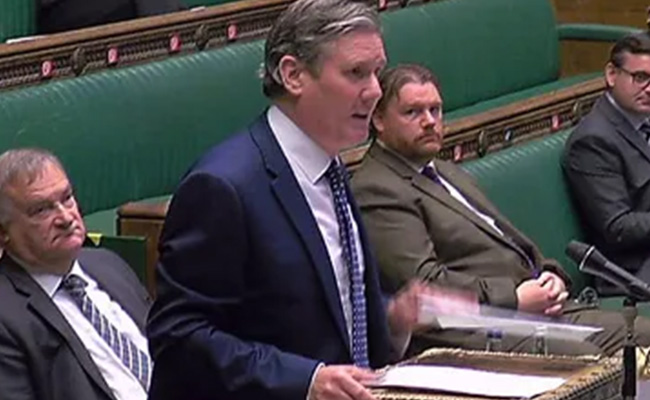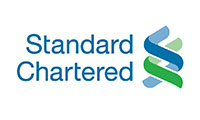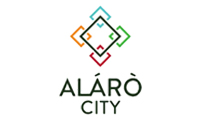
The Prime Minister of the United Kingdom, Boris Johnson has announced that the government department responsible for overseas aid is to be merged with the Foreign Office (FCO).
Boris Johnson told MPs abolishing the separate Department for International Development (DfID) would mean aid spending better reflected UK aims. He said the “long overdue reform” would ensure “maximum value” for taxpayers. Labour leader Sir Keir Starmer said the move would weaken UK influence, and he would re-establish DfID if elected PM.
Three former prime ministers – Conservative David Cameron, and Labour’s Gordon Brown and Tony Blair – have also criticised the move. Mr Cameron said it would mean “less expertise, less voice for development at the top table and ultimately less respect for the UK overseas”.
Ministers are aiming to set up the new joint department – called the Foreign, Commonwealth and Development Office – by September. The move to combine the two, which have a previous history of being merged and split up again, has long been mooted in Conservative circles.
Announcing the plan in the Commons, Mr Johnson said the new joint department would lend “extra throw-weight and kilowattage” to the UK’s aims overseas.
‘Giant Cashpoint’
He added that it was “outdated” to keep the departments separate, with other developed countries already running aid as part of their foreign ministries. For too long, he said, UK aid spending had “been treated as some giant cashpoint in the sky that arrives without any reference to UK interests”.
However, he pledged DfID’s budget – which at £15bn last year dwarfed the £2.4bn spent by the FCO – would be maintained, with the UK committed to continuing to spend 0.7% of national income on aid projects.
Boris Johnson has wanted to merge the Foreign Office and Department for International Development for years. He believes that it is wrong to have two arms of UK foreign policy acting independently, and wants more coherence so the UK can speak with one voice on overseas matters.
But critics within the aid sector fear this merger may see more of the money focused on UK national interests and less on poverty reduction. As such, this is a politically controversial move.
Some will see it as a sensible reordering of Whitehall, to ensure joined up policy and more effective aid spending, helping the most vulnerable while also promoting Britain abroad.
Others will see it as a bureaucratic distraction that will potentially weaken the UK’s global reputation as an aid superpower.
In response, Sir Keir said there was “no rationale” for the merger, which he said was being made now to “deflect attention” from the government’s handling of the Covid-19 crisis. He said DfID had proved one of the UK’s “best performing departments,” and abolishing it represented “the tactics of pure distraction”.
“Abolishing DfID diminishes Britain’s place in the world,” he told MPs. Asked later on Tuesday whether he would undo the merger if elected PM, he replied: “Yes, we introduced DfID for a reason.
“This was cross-party consensus for many many years that DfID did good work. Of course it should be reinstated.”
Tory MP Andrew Mitchell, who was in charge of DfID between 2010 and 2012, said abolishing the department would be a “quite extraordinary mistake”.
But fellow Conservative Jeremy Hunt, who said he had “wrested with this issue” as a former foreign secretary, said the merger was the “right thing to do”.
Oxfam, which has delivered development projects using money from DfID, said the merger would harm the fight to reduce global poverty.
The charity’s chief executive Danny Sriskandarajah said the move was “scarcely believable” at a time when the world was focused on fighting coronavirus.
“This decision puts politics above the needs of the poorest people and will mean more people around the world will die unnecessarily from hunger and disease.”
“The Foreign Office may be excellent at diplomacy, but it has a patchy record of aid delivery and is not as transparent as DfID”, he said.
‘Wrong and regressive’
Former Labour PM Tony Blair – who carved DfID out of the Foreign Office during his time in Downing Street – also called the move “wrong and regressive”.
“The strategic aims of alignment with diplomacy and focus on new areas of strategic interest to Britain could be accomplished without its abolition,” he said.
His successor Gordon Brown said the decision to axe DfID was “sad,” adding it had been “one of the UK’s great international assets.”
SNP Westminster leader Ian Blackford said the move represented the UK “turning its back on the world and to those most in need”.
Acting Liberal Democrat leader Sir Ed Davey said that “confusing” aid objectives with foreign policy decisions was a “massive step backwards”.
History of mergers
The department now known as DfID began life under Harold Wilson’s Labour government in 1964 as the Ministry of Overseas Development (ODM).
It was later merged with the Foreign Office under Ted Heath’s Conservative government in 1970 but was re-established as a separate ministry by Mr Wilson after his return to Downing Street in 1974.
It was re-merged with the Foreign Office again however after the election of Conservative Prime Minister Margaret Thatcher in 1979. It obtained its current name of the Department for International Development (DfID) in 1997 after the carve-out under Mr Blair.





























